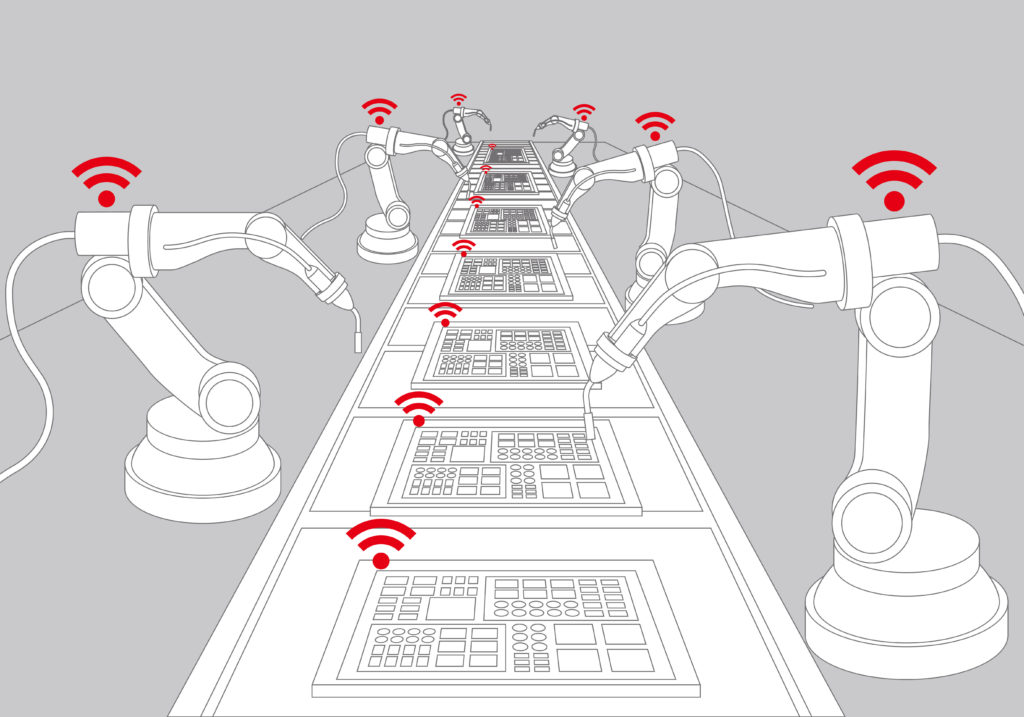In 2011, Germany launched the Industrie 4.0 project at the Hanover Messe trade show to promote computerization of manufacturing. At the time, Chancellor Angela Merkel said “we must deal quickly with the fusion of the online world and the world of industrial production.” According to documentation from the European Commission, Industrie 4.0 “aims to drive digital manufacturing forward by increasing digitization and the interconnection of products, value chains, and business models. It also aims to support research, the networking of industry partners, and standardization.”
The 2018 Hanover Messe trade show that took place between April 23rd through 27th saw increased focus on IoT security. Manufacturers such as ARM and IoT cybersecurity company WISeKey brought their solutions to the forefront to address IoT security concerns. WISeKey announced a partnership with Stimio, a French product developer, to provide end-to-end secure IoT solutions by combining STIM-MOD, Stimio’s IoT hardware platform, with WISekeyIoT, WISeKey’s IoT security framework.
Another major announcement is the advent of Distributed Ledger Technology (DLT), which makes production faster, cheaper, and more secure. However, awareness of DLT is low among many businessmen and women. Moreover, it has not been decided yet which technology will succeed as the new “http”-esque standard of the industry.
Writing for Medium, Chris Mueller believes that IOTA, a scalable, decentralized, feeless, modular, open-source distributed ledger protocol is aimed at the whole Industrial Internet of Things (IIOT) market and already has partnerships which have resulted in working products. According to Mueller, IOTA is the only DLT which has the built-in features to enable fast transactions scalability without any fees or mining.

At the Industrie 4.0 show, Dr. Rolf Werner, Fujitsu’s Head of Central Europe presented a “small version of how they [sic] envision a future smart factory.” IOTA is used as the principle ledger for any information transmitted through the production process. Data is collected, stored in a tamper-proof fashion, and visualized using IOTA, which allows complete audit-trail which completely prevents manipulation of data.
Grandcentrix, a German-based company that pegs itself as “the leading system integrator and app agency for large-scale IoT, IIoT, and smart products solutions” has no official statement on the partnership with IOTA, although the CEO of Grandcentrix, Ralf Rottmann, has joined IOTA-Foundation. Grandcentrix also has partnerships with companies such as Qualcomm, Bluetooth, and Apple’s HomeKit.
The Bottom Line
With the recent trade at Hanover Messe, companies in Germany are taking IoT seriously, and finding novel ways to secure IIoT as manufacturing and other tasks become increasingly advanced, automated, and intelligent. From WISeKey’s joint venture with Stimio, to use cases of DLTs such as IOTA through various companies, it is clear that steps are being taken to secure the security of the industry.

Leave a Reply